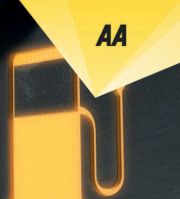Clean air zones are coming, and fleets need to be ready. But with many fleet managers still questioning the suitability of low-emission technologies for light and heavy commercial vehicles, how can we ensure that the transition to alternative fuels is as smooth as possible?.
There's no denying it: clean air and alternative fuels are now firmly part of the fleet industry's agenda. The introduction of clean air zones across several major cities in the UK will set the tone for fleets for years to come.
This year's clean air milestone will hit the capital, as London becomes the first city in the UK to introduce an ultra-low emission zone (ULEZ) this spring. Coming into force on 8th April, the ULEZ traffic management and emission reduction scheme will levy charges for vehicles operating in the specified zone (which will initially be the same as central London's congestion charge zone). These charges will join, rather than replace, the congestion and low emission zone charges.
With daily rates set to reach as high as £100 for heavy goods vehicles, fleets operating in these zones will have two choices: upgrade their fleets or pay the price. But is the technology there to support them?
According to the latest Operational Fleet Insight Report by The AA and BT Fleet, there is currently a lack of trust in electric vehicle (EV) functionality. Seven out of 10 fleet managers believe that diesel's poor reputation is unjustified, and still see it as their fuel of choice.
Nearly half (49%) of fleets, however are compliant with January 2020 emissions regulations, while more than two thirds (68%) believe that the functionality of electric cars is superior to that of electric vans.
Clearly, fleets are not ambivalent towards the value of EV technologies. More than half (56%) of fleet managers believe that fully or hybrid electric vehicles will be the most widely used, beyond petrol or diesel models, in ten years' time. The problem, instead, lies with a perception of today's technologies as expensive, complex and unsuitable for the needs of a fleet business.
A £48 million scrappage scheme for London's ageing vehicle stock, which was recently announced by Mayor Sadiq Khan, is already in the works, but fleets need more than financial support. They need reassurance that EV technologies can keep business ticking, while meeting the industry's increasing environmental obligations.
At the AA, we firmly believe that EVs have a part to play in the future fleet. That's why we've been working hard to make sure the support services are in place to keep fleets moving, regardless of what's fuelling them. Last year, we partnered with BP Chargemaster to launch POLAR network cards for all our AA patrols, which allow them to provide free charge to customers on the road.
We've also installed an industry-leading hybrid vehicle training rig at our Customer Experience Centre in Oldbury. Modelled on a third-generation Toyota Prius, the rig simulates ‘real world' hybrid vehicle faults to replicate numerous breakdown situations, meaning more of these vehicles can be fixed by the roadside.
As more fuels enter the spotlight, we'll continue to develop the service capabilities that our customers need. If you're ready to make the switch to a low-emission fleet, contact us today to see how we can help.
Click here to download a copy of the latest Operational Fleet Insight Report






